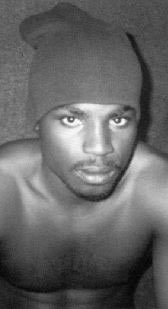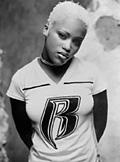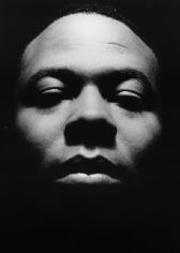Wyclef got ridden pretty hard in these pages last time around, but it’s not all rage and conflict on The Ecleftic. Indeed, the opening couplet of his hit single “It Doesn’t Matter” stakes a claim for a time when hip-hop was nearly drama-free. He reminisces: “Back in the days, it was all about the clubs/And so-called thugs used to dance to ‘Break For Love.'” A decade ago, somewhere between the sunset of Afrocentricity and the dawn of the neogangster era, a strange moment occurred where hip-hop and dance merged. Most famous was the Jungle Brothers’ collaboration with Todd Terry, “I’ll House You.” But that song merely scratched the surface of a whole microgenre known loosely as hip-house and boasting its own verbal superstars—names like Doug Lazy and Fast Eddie—who were virtually unknown in the hip-hop mainstream.
MJ Cole
Sincere (Talkin Loud)
Historically, black music has almost always been friendly to the dance floor. But after disco passed, the fertile downtown ideology that meshed black and white, straight and gay, hip-hop and new wave, and a whole host of conflicting folks seemed to disappear. Hip-hop’s newly rigid masculinity, as evinced in the aggro boasts of Run-DMC’s “Sucker MCs,” left no room for the soft or the weak. In the 15 years since, dancing’s only really been in vogue during that hip-house moment.
Over in England, black music took a very different turn. Reggae soundsystem culture, the primary means of black British musical expression for much of the ’70s and ’80s, spread like a virus through UK youth. As rave culture began to expand in the ’80s, black dubsonics were incorporated (albeit often commodified and dislocated). Ultimately, with the rise of jungle in the ’90s, a club music that spoke to both black and white communities finally appeared. Unfortunately, jungle is long past its prime—but a new sound has emerged to take its place at the forefront of UK dance culture. 2-step garage marries the rolling funk of jungle to the luxurious rhythms of house music, slapping on a healthy dose of R&B vocals to complete the pie.
First heard on pirate radio about four years ago, early incarnations of the genre bore grimy edges—vestiges of its legacy in early jungle, not to mention its clear hip-hop aspirations. UK hip-hop has never coalesced into a potent force. The popularity of dance music renders indigenous hip-hop forever subcultural. However, in black London, clubs often feature a hip-hop and swingbeat (what we call R&B) room in addition to the main dance floor. While the main room was for the hard-core steppers, the side room became a haven for the ghetto fabulous, all ostentatious jewelry, flash clothing, and freely flowing champagne. Partially a lesson learned from New York counterparts—the folks at stalwart London garage club Twice As Nice don’t look all that different from those who frequented New York downtown hip-hop nouveau riche spot Life—the combination also spoke of a new cultural comfort zone, one where thugs and professionals could shed their pretensions at the door and groove to a sound that spoke to both of their experiences.
2-step garage has quickly become the soundtrack to that new lifestyle, as evidenced by the sheer volume of genre compilations stacked on store shelves in England (search for “garage” on amazon.co.uk for a selection). Radio DJs who just three years ago were spinning pirate radio programs are now hosting shows on Radio 1, the country’s largest station. It’s an ascendance that outpaces even that of jungle.
And now, like Roni Size and Goldie did for jungle, garage has become an album art, and its first auteur is MJ Cole. His debut album Sincere (on famed UK imprint Talkin Loud) is an endlessly bouncy set, utilizing the moaning bass that once motored jungle to staggeringly different effect. Instead of jungle’s off-beat syncopation, garage’s operative motif is the stutter-step, a trip of drums that encourages unconscious body movement. On tracks such as “Sincere,” “I See,” and the frenetic, clipped-synth-wash-heavy hit “Crazy Love,” Cole hones a seductive formula. Seduction is key, of course, because 2-step is basically about sex—the beats suggest it; the sultry vocals (male and female alike) suggest it; and most importantly, its native environment, the dance floor, promotes it.
Even more exciting than Cole’s album are the white label remixes of popular American songs. While American producers like the Neptunes, Kevin “She’kspere” Briggs, and Rodney Jerkins are reinstating dance floor joie de vivre to American R&B and hip-hop, this gang of nameless Brits is doing it twice as well. Destiny’s Child, Pink, Angie Stone, Jay-Z, Sisqo, Ol’ Dirty Bastard—they’ve all been given the 2-step treatment, and in that context their occasionally dour material is injected with a bit of optimistic spice.
On the Twice As Nice dance floor, New York’s pregangster melting pot is being reimagined. With the right crossover hooks, perhaps American thugs, players, and squares will once again be reunited. On the dance floor.








